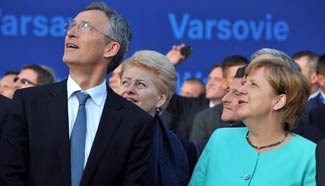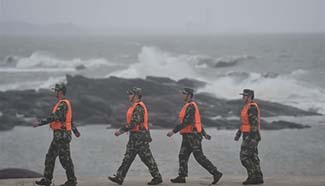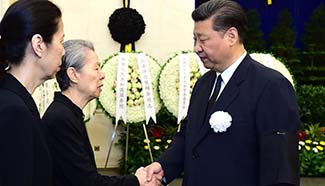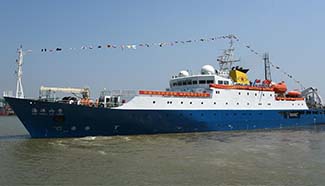MEXICO CITY, July 9 (Xinhua) -- Holding the first Olympic Games of the modern era, made a dream largely pursued by Baron Pierre de Coubertin come true. The baron had been enthusiastic about the idea of resurrecting the Olympics after it had been forgotten about for 1,500 years.
In 1852, with an increasing interest for sporting events from Europe, a group of German archaeologists carried out excavations on the ancient Greek city of Olympia in order to better understand the history of the Olympic Games from Classical Greece.
In 1894, Coubertin traveled to Olympia and decided to initiate the project of rescuing and updating the Olympics.
The same year, the International Olympic Committee carried out its first sessions in Paris, where it was decided that Athens should be the venue for the first modern Games.
The first Olympics, officially known as Games of the I Olympiad, only included nine sports encompassing 10 disciplines and 43 events: athletics, cycling, fencing, gymnastics, sailing, shooting, swimming, tennis, weightlifting and wrestling.
The first Games were inaugurated in the Panathenaic Stadium in Athens on April 6, 1896, and they came to an end on April 15. At the sporting event, 241 athletes participated, all men, from 14 countries.
In the Opening Ceremony, King George I of Greece officially opened the competition saying: "I declare the opening of the first international Olympic Games in Athens." This was because the act of lighting the Olympic Flame from the Torch did not exist at this point.
During the contest, silver medals and olive branches were handed out to those who finished first and the second-placed received a copper medal and a laurel branch. All participants received commemorative certificates.
Afterwards, the Games were so successful that Coubertin proposed the sporting event rotate all over the world and take place every four years.
United States athlete James Connolly's winning triple jump is among the sporting achievements worthy of note during the first edition of the Games as he was the first Olympic champion in the modern era.
Also, the British Launceston Elliot won the one-hand weightlifting category, making him the first Olympic champion from the United Kingdom and one of the most popular sportsmen from his country.
For the hosts, the most important event was the marathon in light of its historic significance and their representatives did not let them down. Spyridon Luis, 24, took the lead four kilometers from the finish line and won the race with a time of two hours 58 minutes and 50 seconds. Second place, another Greek athlete, crossed the finish line over seven minutes later.
As a historic anecdote, it was recorded that the Greek long-distance runner who worked as a water carrier ran wearing shoes that had been donated to him by his neighbors in his hometown.
The swimming categories took place in the open sea, in the Bay of Zea, because the organizers had refused to spend money on building a special stadium. The swimmers were transported by boat to the starting line, 100, 500 and 1,200 meters from the beach.
Hungarian swimmer Alfred "Hajos" Guttmann, 18, won the 100 and 1,200 meters freestyle categories. The glory that "Hajos" brought to his country was not only reflected in his sporting career but also, in 1924, he was a medalist at the Paris Olympic Games in the architecture competition. This made him one of only two Olympians ever to have won medals in both sport and art Olympic competitions. Afterwards, he was charged with drawing plans for several new sporting facilities in his country.
According to Athenian records, a U.S. athlete participating in a swimming event refused to continue the race after jumping into the water because it was too cold. The temperature in the water was thought to be around 13 degrees Celsius.
In fencing, the competitors were divided into two categories - professionals and amateurs. In the other sports, professionals were not allowed to compete so this marked the first representation of professional athletes in the Games. For a long time, fencing was the only Olympic sport that allowed professionals.
In gymnastics, Germany won the parallel bars and horizontal bar. However, it is important to point out that in the second category, only gymnasts from Germany competed.
Olympic Games Athens 1896 Medal Table
COUNTRY GOLD SILVER BRONZE TOTAL
United States 11 7 2 20
Greece 10 17 19 46
Germany 6 5 2 13
France 5 4 2 11
United Kingdom 2 3 2 7
Hungary 2 1 3 6
Austria 2 1 2 5
Australia 2 0 0 2
Denmark 1 2 3 6
Switzerland 1 2 0 3










